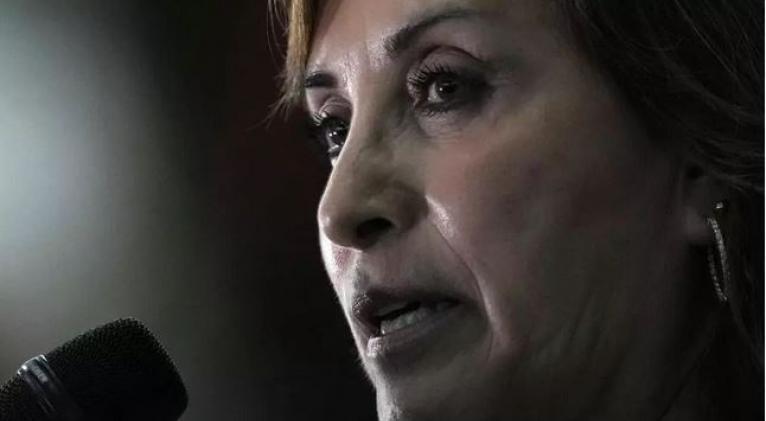Unpopular President Dina Boluarte Removed from Office in Peru
especiales

Peruvians are celebrating today following the Parliament's decision to remove President Dina Boluarte from office due to "permanent moral incapacity," with votes exceeding the two-thirds majority required by the Constitution.
The final outcome of her controversial government was approved by 123 of the 130 congressmen, a majority that the current fragmented and polarized legislature had never before achieved.
The process of removal was simplified and expedited by the near-unanimity of the lawmakers, as the now-former president refused to appear to exercise her right to defense or to send her lawyer.
Jubilation erupted both inside the legislative chamber and outside the Legislative Palace, where thousands of demonstrators, despite the late hour, celebrated the end of Boluarte's government with songs and slogans condemning the leader who governed Peru against public opinion.
Days before her removal, a poll confirmed that only two percent of respondents approved of her performance as head of state, indicating an almost complete lack of popular support.
The president was unable to visit interior cities, as she had been repudiated on several occasions. In one such incident, a protester surprised her security detail and pulled her hair. When she did visit a province, it was done without prior announcement, briefly, and with a massive security deployment, and she was booed at nearly all of her public events.
The rejection of Boluarte was a kind of stigma. She had a baptism of fire upon assuming the office, replacing President Pedro Castillo, which triggered massive protests that were suppressed, resulting in dozens of deaths. Her alleged responsibility for those deaths is the most serious charge against her; the investigation was halted by a controversial ruling from the Constitutional Court, which suspended the probe until her term ended.
Popular sectors also did not accept that Boluarte governed with those who were enemies of President Castillo, to whom she had promised loyalty on more than one occasion.
The country's ongoing security crisis and, more specifically, the impunity of an attack by hitmen from extortionist organizations on a popular orchestra, served as the trigger for the removal.
However, another factor may have carried more weight in the decision of the Parliament, which had previously protected her, to join the removal motion promoted several times by left-wing and center legislators.
That factor was the electoral objectives of the hegemonic parties in Congress, which knew they were facing certain defeat in the general elections of April 2026.














Add new comment